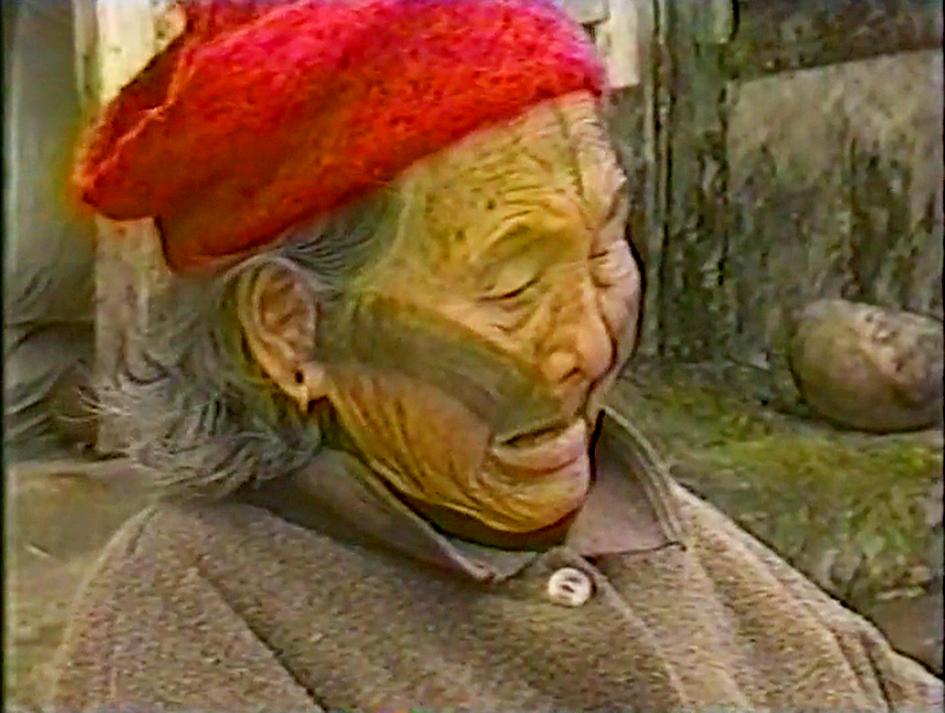With a dizzying array of offerings ranging from acclaimed international productions to fuzzy vintage curiosities to experimental performance theater, it’s always hard to know where to start with the Taiwan International Documentary Festival (TIDF).
It’s even a tougher task for the preliminary judges, who each sifted through between 200 and 300 submissions, then argue their cases against other judges before whittling the final list down to 45.
To help the audience out, judge Sun Sung-jung (孫松榮) gave his top picks for the international competition section at a talk earlier this month. Erased: Ascent of the Invisible is a conceptual and philosophical piece exploring the forgotten or covered-up victims, sites and atrocities of the Lebanese Civil War, while The Makavejev Case or Trial in a Movie Theater examines the public debate held in 1971 Yugoslavia on whether the controversial film WR: Mysteries of the Organism should be banned.

Photo courtesy of Taiwan International Documentary Festival
Sun also mentions the only Taiwanese selection, Huang Pang-chuan’s (黃邦銓) 18-minute Last Year When the Train Passed by (去年火車經過的時候). Huang snapped a few photos while riding on a train in France, and later returned to the scene of each photograph to ask if locals residents remembered what they were doing at that moment.
Delayed for a year because of COVID-19, the 12th edition of the film festival kicks off tomorrow with nearly 140 productions from across the world. In addition to the main competition section, which is separated into international, Asia and Taiwan portions, there are plenty of special screening programs as well as events, performances and talks across Taipei.
For the Taiwanese portion of the competition, festival coordinator Chen Wan-ling (陳婉伶) recommends Flow (伏流), a stream-of-consciousness exploration of the neighborhoods near Taipei’s Treasure Hill Artist Village (寶藏巖國際藝術村) and their residents. Housing (買房子賣房子) delves into Taiwan’s real estate business and examines its underlying capitalist values while juxtaposing it with images of protests against the forced demolition of homes. Gubuk focuses on escaped migrant workers, but what’s special is that the workers are involved in the creative process.

Photo courtesy of Taiwan International Documentary Festival
This year’s festival places a special spotlight on Hong Kong. The opening film, Inside the Red Brick Wall (理大圍城), follows the dramatic two-week standoff in November 2019 at Hong Kong’s Polytechnic University between protests and police, and more can be seen in the special program “Salute! Independent Documentaries in Hong Kong and China.”
Retro fans are in for a treat, as there are two sections dedicated to the grainy images of Taiwan’s yesteryear. “Indigenous with a Capital I” is devoted to the first wave of Aborigine-shot documentaries made between 1994 and 2000, while “Fragrant Formosa” (芬芳台灣) features digitally restored pieces from the television series of the same name that aired in the 1970s and 1980s. Shot on 16mm film, selections include the 1975 Dajia Matsu Pilgrimage and a 1977 mullet roe harvest in the south.
The festival also pays tribute to Lee Meng-che (李孟哲), known for his pieces on social and labor movements, and Mickey Chen (陳俊志), an LGBTQ film pioneer and writer. Both died in 2018, and a special section features their work along with similarly-themed international offerings. Of note is Chen’s unfinished adaptation of his autobiographical novel Taipei Dad, New York Mom (台北爸爸,紐約媽媽), which was discovered after his death and shown for the first time at the 2019 Golden Horse Film Festival.

Photo courtesy of Taiwan International Documentary Festival

Photo courtesy of Taiwan International Documentary Festival

Photo courtesy of Taiwan International Documentary Festival

Last week Joseph Nye, the well-known China scholar, wrote on the Australian Strategic Policy Institute’s website about how war over Taiwan might be averted. He noted that years ago he was on a team that met with then-president Chen Shui-bian (陳水扁), “whose previous ‘unofficial’ visit to the US had caused a crisis in which China fired missiles into the sea and the US deployed carriers off the coast of Taiwan.” Yes, that’s right, mighty Chen caused that crisis all by himself. Neither the US nor the People’s Republic of China (PRC) exercised any agency. Nye then nostalgically invoked the comical specter

April 15 to April 21 Yang Kui (楊逵) was horrified as he drove past trucks, oxcarts and trolleys loaded with coffins on his way to Tuntzechiao (屯子腳), which he heard had been completely destroyed. The friend he came to check on was safe, but most residents were suffering in the town hit the hardest by the 7.1-magnitude Hsinchu-Taichung Earthquake on April 21, 1935. It remains the deadliest in Taiwan’s recorded history, claiming around 3,300 lives and injuring nearly 12,000. The disaster completely flattened roughly 18,000 houses and damaged countless more. The social activist and

Over the course of former President Ma Ying-jeou’s (馬英九) 11-day trip to China that included a meeting with Chinese Communist Party (CCP) leader Xi Jinping (習近平) a surprising number of people commented that the former president was now “irrelevant.” Upon reflection, it became apparent that these comments were coming from pro-Taiwan, pan-green supporters and they were expressing what they hoped was the case, rather than the reality. Ma’s ideology is so pro-China (read: deep blue) and controversial that many in his own Chinese Nationalist Party (KMT) hope he retires quickly, or at least refrains from speaking on some subjects. Regardless

Approaching her mid-30s, Xiong Yidan reckons that most of her friends are on to their second or even third babies. But Xiong has more than a dozen. There is Lucky, the street dog from Bangkok who jumped into a taxi with her and never left. There is Sophie and Ben, sibling geese, who honk from morning to night. Boop and Pan, both goats, are romantically involved. Dumpling the hedgehog enjoys a belly rub from time to time. The list goes on. Xiong nurtures her brood from her 8,000 square meter farm in Chiang Dao, a mountainous district in northern Thailand’s